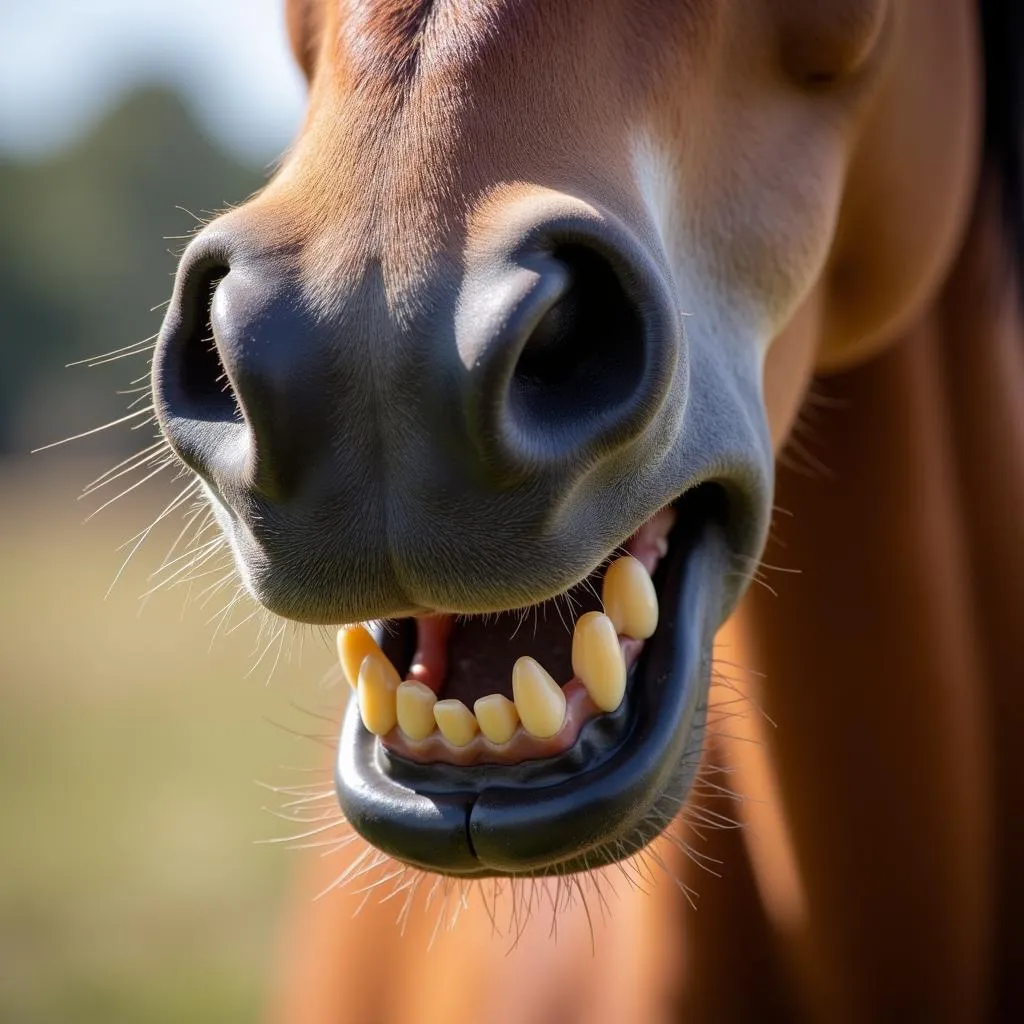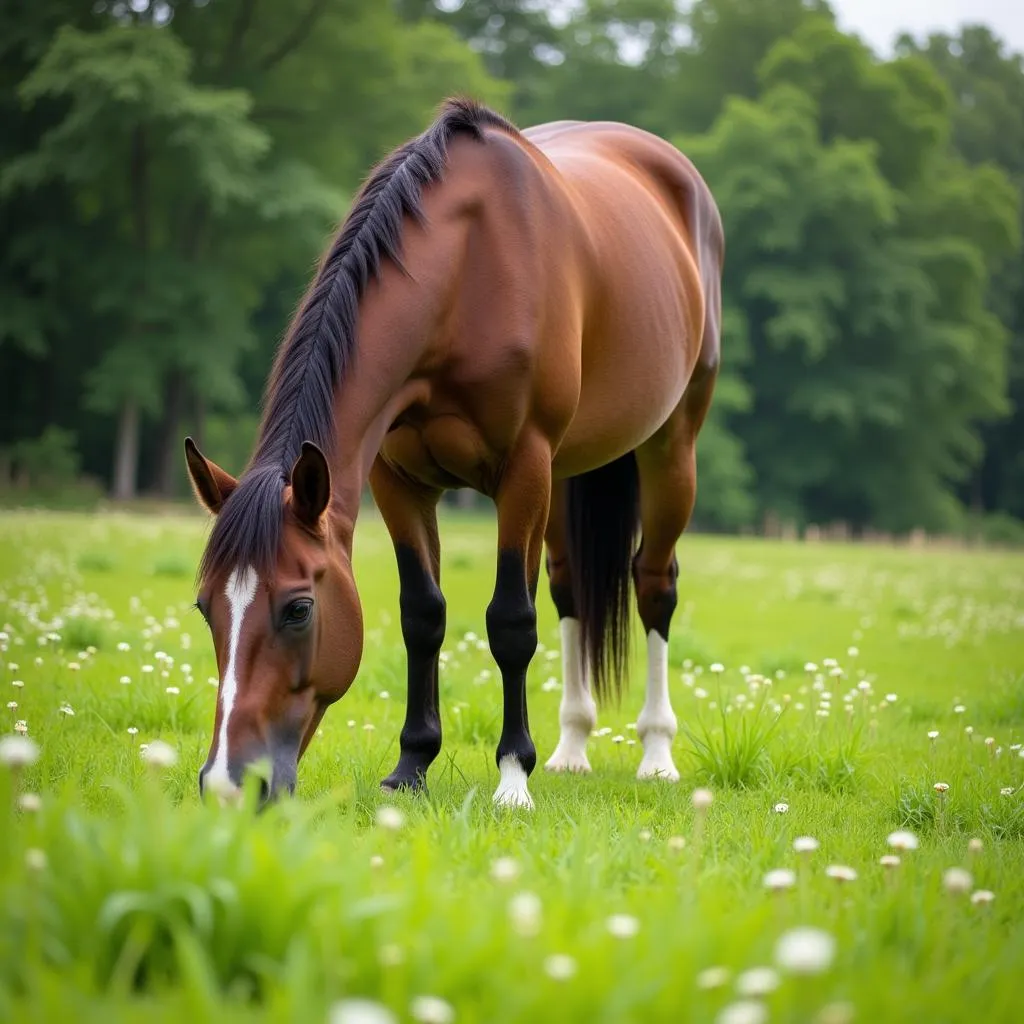The term “Caps Horse” can be a bit confusing for those new to the equestrian world. It doesn’t refer to a specific breed, color, or discipline, but rather a stage in a horse’s life – specifically, a young horse, usually between one and two years old, that has outgrown its baby teeth but hasn’t yet reached full maturity. This period is crucial for development and lays the foundation for the horse’s future health and temperament. Let’s delve deeper into the world of caps horses, covering their unique characteristics, care requirements, and what you need to know if you’re considering bringing one home.
Navigating the Caps Horse Stage
During this stage, a horse experiences significant physical and mental changes as it transitions from a foal to a young adult. Recognizing these changes is key to providing appropriate care and training.
Physical Development
- Dental Changes: A caps horse gets its name from the “caps” – temporary teeth – that are shed as their permanent teeth erupt. This process can cause discomfort, making them fussy eaters.
- Rapid Growth: Expect a growth spurt! Caps horses gain weight and height rapidly, demanding a balanced diet to support bone and muscle development.
- Changing Physique: The gangly, awkward appearance of a foal gives way to a more proportionate physique, though they still haven’t reached their full height or muscular development.
Mental Development
- Curiosity and Exploration: Caps horses are naturally curious and eager to explore their surroundings. This inquisitiveness can make them a joy to work with but also requires careful supervision.
- Developing Social Skills: This is a critical period for socialization. Interacting with other horses helps them learn herd dynamics and develop appropriate social behavior.
- Foundation Training: While not yet ready for intense training, caps horses benefit from groundwork that introduces basic commands and establishes trust.
 Caps Horse Teeth Eruption
Caps Horse Teeth Eruption
Caring for Your Caps Horse
Proper care is paramount during this crucial developmental stage. Here’s what you should focus on:
Nutrition
- High-Quality Forage: Provide unlimited access to good-quality hay or pasture. This forms the foundation of their diet and is essential for digestive health.
- Concentrated Feed: Supplement with a balanced concentrate feed specifically formulated for growing horses. Consult your veterinarian for the appropriate type and amount.
- Fresh Water: Ensure a constant supply of fresh, clean water.
 Young Caps Horse Grazing in Open Pasture
Young Caps Horse Grazing in Open Pasture
Healthcare
- Regular Veterinary Checkups: Schedule regular checkups with your veterinarian for vaccinations, deworming, and overall health assessments.
- Dental Care: Caps horses require regular dental checks as their permanent teeth erupt. A qualified equine dentist can identify and address any potential issues.
- Hoof Care: Schedule regular farrier appointments for hoof trimming and maintenance. This is crucial for proper growth and development.
Training and Handling
- Positive Reinforcement: Use positive reinforcement techniques, such as treats and praise, to encourage desired behavior.
- Groundwork Essentials: Focus on groundwork exercises like leading, tying, and basic voice commands to build a solid foundation.
- Socialization: Provide ample opportunities for your caps horse to interact with other horses in a safe and controlled environment.
Is a Caps Horse Right for You?
Bringing home a caps horse is a big decision. While their youthful energy and potential are appealing, they require an experienced owner who understands their specific needs and can provide appropriate care and training.
If you’re up for the challenge and committed to providing a nurturing environment, a caps horse can be an incredibly rewarding companion to watch grow and develop into its full potential.
FAQs About Caps Horses
1. What is the average height and weight of a caps horse?
The height and weight of a caps horse can vary greatly depending on breed and individual growth rates.
2. When can I start riding my caps horse?
It’s best to avoid riding a caps horse until they are at least three years old to allow for proper bone and muscle development.
3. What are some common health problems in caps horses?
Like all young horses, caps horses are susceptible to certain health issues, including parasites, respiratory infections, and developmental orthopedic diseases.
Need More Information?
For further assistance in caring for your “safira horse” or if you have concerns about your “horse walking on toe hind leg”, please don’t hesitate to contact us. Our team at Justus Horses USA is dedicated to providing you with the support you need.
Contact Us:
Phone: 0772127271
Email: [email protected]
Address: QGM2+WX2, Vị Trung, Vị Thuỷ, Hậu Giang, Việt Nam
Our customer service team is available 24/7 to assist you with any questions or concerns you may have.